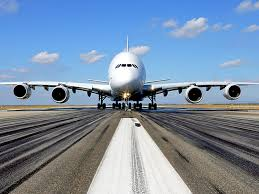 The CAA is consulting with the travel industry on proposals to rebalance the regulatory approach to the Air Travel Organisers’ Licensing (ATOL) scheme.
The CAA is consulting with the travel industry on proposals to rebalance the regulatory approach to the Air Travel Organisers’ Licensing (ATOL) scheme.
This will extend the risk-based regulatory approach now well established with larger license holders, help reduce the likelihood of consumers being affected by insolvency and provide further protection against calls on the Air Travel Trust (ATT).
The CAA is consulting on four main changes:
1. The withdrawal of the Small Business ATOL (SBA) scheme.
2. The adoption of a more risk-based method of financial assessment for ATOL holders with licensable revenue of less than £5million.
3. The introduction of revised assurance reporting arrangements which have been developed in conjunction with the Institute of Chartered Accountants in England and Wales (ICAEW).
4. The development of online facilities which will enable ATOL holders to access self-service and self-assessment services in conjunction with the other changes.
This consultation seeks to gather travel industry views on proposals which are intended to redress areas of the protection scheme which the CAA views as no longer fair, or proportionate.
The proposed withdrawal of the SBA licensing scheme is a significant change for smaller businesses, but there are now established alternative ways of meeting the regulatory requirements and any implementation will be phased in over a number of years.
The revised assurance reporting arrangements for all ATOL holders is intended to ensure that the CAA obtains accurate reporting of all ATOL activity so that regulatory decisions are taken on a consistent basis across the whole industry.
The proposed move to online facilities reflects the CAA’s commitment to invest in online services, in order to deliver regulation more efficiently.
Andy Cohen, Head of ATOL at the CAA, said: “We are very aware that a financial protection scheme needs to be able to demonstrate that there is fair treatment for all licence holders and, furthermore, where it is clear that there is a higher risk of failure among some members then that needs to be reflected in the regulatory requirements.
“We believe this approach will benefit the travel industry and the consumers that it serves equally. In addition, this is also consistent with better regulation, as the costs of regulation should be proportionate and increased requirements should only be targeted at business models which represent greater risk.”
The consultation will run for three months until 6 October, 2014 and the CAA is encouraging travel industry and consumer representatives to feed in their views on the proposals. During this period the CAA will meet with stakeholders and at the end of the period it will publish all responses to the consultation in full.
Uday Dholakia, Chairman of LABA and an independent Member of CAA Insolvency Panel said” the consultation given the British Asian Travel industry to express their views on an industry and market of particular significance to the Asian diaspora along with consumer interests. Often the Asian community has been diffident about engaging in consultation that is vital to their interests, only to suffer the outcomes and then lobby. I would urge the travel industry and consumer groups within the Asian communities to actively engage with this consultation”.
The Civil Aviation Authority (CAA) is the UK’s specialist aviation regulator. Its regulatory activities range from making sure that the aviation industry meets the highest technical and operational safety standards to preventing holidaymakers from being stranded abroad or losing money because of tour operator insolvency
One of the CAA’s principal responsibilities is to manage the Air Travel Organisers’ Licensing (ATOL) scheme, which provides protection to holidaymakers from being stranded abroad or losing money when purchasing air holidays and flights from licensed tour operators. If an ATOL holder fails, the CAA is responsible for ensuring customers are either repatriated back to the UK or receive a refund of payments made.
The ATOL scheme covers the traditional package holiday, some individual flights and holidays known by the industry as ‘Flight-Plus’. A ‘Flight-Plus’ booking is one that includes a flight plus accommodation and/or car hire, so long as these separate parts of the holiday are requested within a day of each other.
The Air Travel Trust (ATT) is the primary source of funding when an ATOL holder fails. It is administered on behalf of the ATT by the Civil Aviation Authority (CAA).